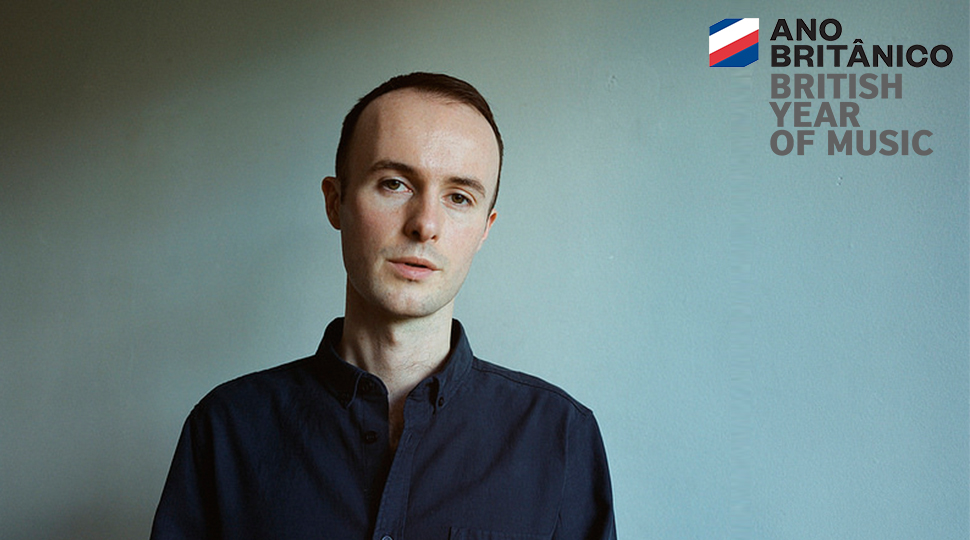2017 is the Year of British Music in Porto, Portugal, and the Casa da Música will play host to wonderful British composers past and present through a programme of shows and events brimming with the best of British classical music.
Edmund Finnis was one of four composers, supported by the British Council, to fly out to Portugal for the opening weekend of The Year of British Music. The composers met with European festival producers, musicians and orchestras and presented some of their own work.
Edmund received a Paul Hamlyn Foundation Award for Artists in 2012. He was Composer in Residence at the 2013 Chelsea Music Festival in New York City, and recently became a Professor of Composition at the Royal Academy of Music. He has enjoyed particularly close associations with both the London Sinfonietta – who have variously commissioned, performed, toured and recorded several of his pieces – and the London Contemporary Orchestra (LCO), with whom he was Composer in Association from 2013 to 2016.
We caught up with him to talk about composition, getting started in music and what the future has in store.
What drives you as a composer?
From an early age I have always been instinctually driven to make, assemble and listen attentively to sounds. I have a deep love for the sounds of instruments and voices, their energy and their idiosyncrasies, the infinite potential ways in which they can be combined and placed in time. The communal aspect of playing and listening to music together is also very important to me. I compose live music for instruments and voices because I’m fundamentally drawn to the excitement of everything being made at that very moment, in a particular space, in front of our eyes and ears, heightening our awareness of time passing and potentially sharpening our perception of the sensory world around us.
How did you get started?
I was very fortunate to be able to sing in an excellent choir when I was boy. This early opportunity to experience music ranging from Renaissance polyphony to Bach’s Passions to Jonathan Harvey’s motets “from the inside” had a profound and lasting effect on me. I knew at that point that my life would be spent making music. In my adolescence I composed, formed bands, played chamber and orchestral music and also made electronic music. Creating and manipulating sounds on computers and synthesisers gave me a very tactile approach to the physical stuff of sound and how it can be shaped. I went on to study at Guildhall School of Music & Drama and immersed myself in the enormous breadth of music-making that London offers. I’m very lucky to have had some excellent teachers and mentors in my youth, and grateful for early-career performances and commissions from the London Sinfonietta, London Symphony Orchestra and the Chelsea Music Festival in New York.
How did you find the Casa da Música showcase? Was it beneficial to you as a composer?
It was a pleasure to be asked to present my music at the Casa da Música showcase. I had useful conversations with delegates from orchestras, festivals and arts institutions across Europe, as well as lively discussions with other musicians at the various events. Porto is a city I love and this opening weekend of the Casa da Música’s extraordinary year-long festival of British music was packed with excellent performances which I was very glad to be able to attend.
What’s next for you as a composer?
I’m currently putting together an album of my recent music, and also writing a new set of piano pieces to be premiered early next year by Clare Hammond. My latest piece is called “The Air, Turning”. It was premiered in Glasgow by the BBC Scottish Symphony Orchestra, conducted by Ilan Volkov. While composing the piece I was thinking about how we experience the medium of air: how vibrating air moves as sound across distance; how air is coloured by light, seen and seen through, breathed in and out; the sensation of it moving around us. The piece is the first in a planned series of ‘elemental’ orchestral pieces that I intend to write in the coming years.
More from Edmund Finnis
Brother
Lines Curved Rivers Mirrored
Shades Lengthen (3rd Movement)
Portrait Show with the London Contemporary Orchestra (LCO)
Edmund Finnis on Soundcloud
The Year Of British Music, More in this series:


